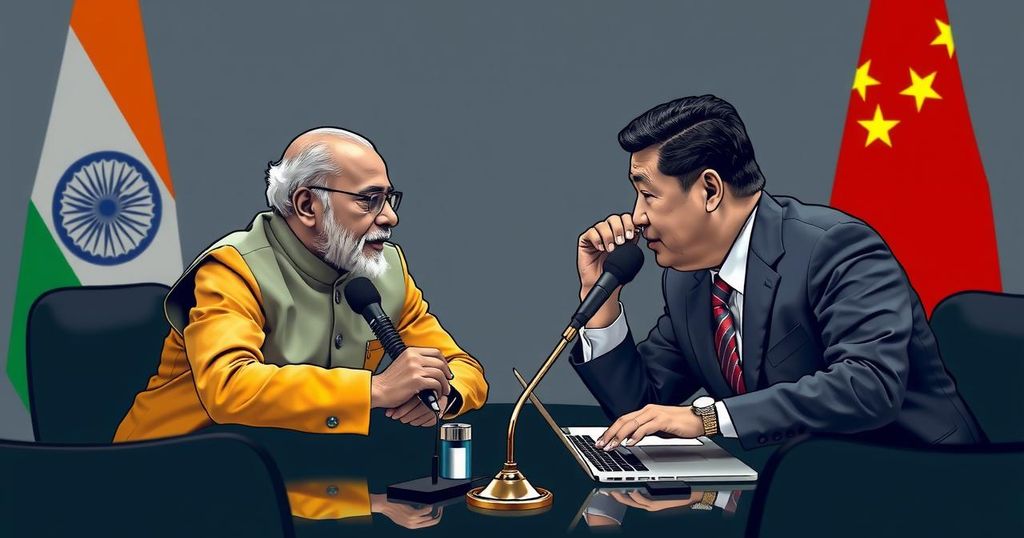India’s External Affairs Minister S. Jaishankar met with Chinese Foreign Minister Wang Yi at the G20 summit to review troop disengagement in Demchok and Depsang, marking the first high-level talks since the disengagement completion. Both nations discussed future steps in their bilateral relationship and broader global issues. The disengagement allows for renewed patrolling in these areas after four and a half years.
At the recent G20 summit held in Brazil, India’s External Affairs Minister S. Jaishankar engaged in discussions with his Chinese counterpart, Wang Yi, concerning the military disengagement processes taking place in the Demchok and Depsang regions of eastern Ladakh. This meeting marked the first high-level dialogue following the completion of troop disengagement along the Line of Actual Control (LAC). Minister Jaishankar conveyed in a post on social media that both nations had noted the progress made and deliberated on the upcoming phases of India-China relations, while also touching upon broader global issues. The disengagement activities in the contested areas were finalized last month, allowing both countries to resume patrolling in these regions after a hiatus of approximately four and a half years. This meeting signifies a crucial step in addressing ongoing border tensions and emphasizes the importance of diplomatic engagements in stabilizing bilateral ties.
The India-China border dispute has been a long-standing issue, particularly in the eastern Ladakh region. Recent military standoffs have necessitated a dialogue to ease tensions and restore peace. The disengagement in Demchok and Depsang is a significant development as it facilitates a resolution to these frictions and marks an important aspect of the countries’ diplomatic relations. Engaging in high-level discussions allows both nations to reassess and strengthen their bilateral commitments in the context of regional and global stability.
In conclusion, the recent discussions between India and China at the G20 summit underscore the ongoing efforts to manage and improve bilateral relations following successful troop disengagement in contentious border areas. As both nations reassess their diplomatic strategies, the commitment to ongoing dialogue is critical for future cooperation. The resumption of patrolling signifies a cautious move toward stability, reflecting a shared desire to resolve longstanding disputes amicably.
Original Source: www.ndtv.com






